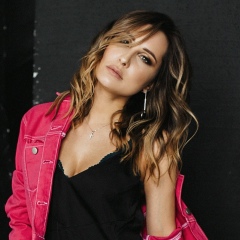Вот кем я работаю:)))) www.profguide.ru/professions/tutor.html
Тьютор
Тьютор – специалист, сопровождающий учащегося или студента в процессе индивидуального обучения, он участвует в разработке индивидуальных образовательных программ для своих подопечных. Однако миссия тьютора гораздо выше и масштабнее, чем простая помощь в учёбе.
Англ. tutor в переводе с английского – педагог-наставник, опекун, попечитель.
От лат. tueor – заботиться, оберегать.Особенности профессии
Для России тьюторство – принципиально новый вид педагогики.
Хотя есть множество областей, где оно находит своё примернение: социальная работа с проблемными семьями, детсады, школы, колледжи и вузы, инклюзивное образование и дистанционное.
Тьюторство в образовании означает максимальную индивидуализацию учебного процесса.
Чем это отличается от индивидуального подхода? Тем, что индивидуальный подход – это замечательная практика, когда учитель или воспитатель находит особый подход для каждого подопечного. Допустим, какое-то математическое действие не даётся ученику, и учитель находит новый способ объяснения.
А индивидуализацией специалисты называют такую работу, когда ребёнку дают знания и умения, исходя из его собственных интересов.
Тьютор – это своего рода посредник между традиционным педагогом и ребёнком. Он анализирует интересы и проблемы ребёнка, отслеживает, что в программе даётся с трудом, а к чему есть способности.
Если традиционный педагог может в досаде махнуть рукой на нерадивого ученика, то тьютор на то и тьютор, чтобы найти этому ученику индивидуальный маршрут освоения знаний. Он помогает ему сформировать учебные интересы, а в итоге – нащупать своё призвание.
Как говорят специалисты, учитель работает ответами, а тьютор вопросами. Это особое умение.
В Европе и США такая система, при которой каждый учится по собственному алгоритму, широко используется в вузах. Такова, например, система в Кембриджском университете (Англия).
В России она тоже нашла применение – в первую очередь, именно в школах. Хотя пока это похоже на эксперимент, т.к. дипломированных специалистов практически нет. Педагогические вузы начали готовить их совсем недавно.
«Особые» дети
В некоторых случаях присутствие тьютора рядом с ребёнком жизненно необходимо. В первую очередь это касается инклюзивных школ и детских садов. Слово «инклюзивный» применительно к садику и школе означает, что их посещают не только практически здоровые дети, но и такие, которым требуются особые условия. Это дети с так называемыми ограниченными возможностями здоровья (ОВЗ).
Если ребёнок плохо видит или слышит, если ему трудно ходить из-за перенесённой травмы или ДЦП, если у него нарушение речи или есть заметные интеллектуальные проблемы, он может учиться среди обычных сверстников, у которых таких проблем нет. Но для этого ему нужна помощь тьютора-воспитателя. Другое название – воспитатель-сопровождающий.
Во-первых, ребёнку нужна физическая помощь. Ребёнку с ДЦП тьютор помогает передвигаться, глухому или слабослышащему – усваивать информацию с помощью специальной аппаратуры или языка жестов и т.д. Но тьютор – не нянька. Его работа не сводится к ежеминутному обслуживанию. Он общается со своим подопечным столько, сколько это действительно необходимо, и поэтому может опекать сразу нескольких детей в классе. Иногда требуется постоянное сопровождение, иногда – время от времени, на определённых уроках и занятиях. Главная задача такого педагога – поддерживать в ребёнке стремление к самостоятельности, чтобы в дальнейшем он мог жить обычной жизнью среди сверстников.
Тьютор
Тьютор – специалист, сопровождающий учащегося или студента в процессе индивидуального обучения, он участвует в разработке индивидуальных образовательных программ для своих подопечных. Однако миссия тьютора гораздо выше и масштабнее, чем простая помощь в учёбе.
Англ. tutor в переводе с английского – педагог-наставник, опекун, попечитель.
От лат. tueor – заботиться, оберегать.Особенности профессии
Для России тьюторство – принципиально новый вид педагогики.
Хотя есть множество областей, где оно находит своё примернение: социальная работа с проблемными семьями, детсады, школы, колледжи и вузы, инклюзивное образование и дистанционное.
Тьюторство в образовании означает максимальную индивидуализацию учебного процесса.
Чем это отличается от индивидуального подхода? Тем, что индивидуальный подход – это замечательная практика, когда учитель или воспитатель находит особый подход для каждого подопечного. Допустим, какое-то математическое действие не даётся ученику, и учитель находит новый способ объяснения.
А индивидуализацией специалисты называют такую работу, когда ребёнку дают знания и умения, исходя из его собственных интересов.
Тьютор – это своего рода посредник между традиционным педагогом и ребёнком. Он анализирует интересы и проблемы ребёнка, отслеживает, что в программе даётся с трудом, а к чему есть способности.
Если традиционный педагог может в досаде махнуть рукой на нерадивого ученика, то тьютор на то и тьютор, чтобы найти этому ученику индивидуальный маршрут освоения знаний. Он помогает ему сформировать учебные интересы, а в итоге – нащупать своё призвание.
Как говорят специалисты, учитель работает ответами, а тьютор вопросами. Это особое умение.
В Европе и США такая система, при которой каждый учится по собственному алгоритму, широко используется в вузах. Такова, например, система в Кембриджском университете (Англия).
В России она тоже нашла применение – в первую очередь, именно в школах. Хотя пока это похоже на эксперимент, т.к. дипломированных специалистов практически нет. Педагогические вузы начали готовить их совсем недавно.
«Особые» дети
В некоторых случаях присутствие тьютора рядом с ребёнком жизненно необходимо. В первую очередь это касается инклюзивных школ и детских садов. Слово «инклюзивный» применительно к садику и школе означает, что их посещают не только практически здоровые дети, но и такие, которым требуются особые условия. Это дети с так называемыми ограниченными возможностями здоровья (ОВЗ).
Если ребёнок плохо видит или слышит, если ему трудно ходить из-за перенесённой травмы или ДЦП, если у него нарушение речи или есть заметные интеллектуальные проблемы, он может учиться среди обычных сверстников, у которых таких проблем нет. Но для этого ему нужна помощь тьютора-воспитателя. Другое название – воспитатель-сопровождающий.
Во-первых, ребёнку нужна физическая помощь. Ребёнку с ДЦП тьютор помогает передвигаться, глухому или слабослышащему – усваивать информацию с помощью специальной аппаратуры или языка жестов и т.д. Но тьютор – не нянька. Его работа не сводится к ежеминутному обслуживанию. Он общается со своим подопечным столько, сколько это действительно необходимо, и поэтому может опекать сразу нескольких детей в классе. Иногда требуется постоянное сопровождение, иногда – время от времени, на определённых уроках и занятиях. Главная задача такого педагога – поддерживать в ребёнке стремление к самостоятельности, чтобы в дальнейшем он мог жить обычной жизнью среди сверстников.
That's what I work :)))) www.profguide.ru/professions/tutor.html
Tutor
A tutor is a specialist accompanying a student or student in the process of individual training, he participates in the development of individual educational programs for his students. However, the tutor’s mission is much higher and larger than a simple study aid.
English tutor translated from English - teacher-mentor, guardian, trustee.
From lat. tueor - care, protect. Features of the profession
For Russia, tutoring is a fundamentally new type of pedagogy.
Although there are many areas where it finds its example: social work with problem families, kindergartens, schools, colleges and universities, inclusive education and distance learning.
Tutoring in education means the maximum individualization of the educational process.
How does this differ from an individual approach? The fact that an individual approach is a wonderful practice when a teacher or educator finds a special approach for each ward. Suppose some mathematical action is not given to the student, and the teacher finds a new way of explanation.
And experts call individualization such work when the child is given knowledge and skills, based on his own interests.
A tutor is a kind of mediator between a traditional teacher and a child. It analyzes the interests and problems of the child, monitors what is given in the program with difficulty, and for which there are abilities.
If a traditional teacher can wave his hand at a negligent student in frustration, then a tutor and then a tutor to find this student an individual route for mastering knowledge. He helps him to form his educational interests, and in the end - to grope his vocation.
According to experts, the teacher works with answers, and the tutor with questions. This is a special skill.
In Europe and the USA, such a system in which everyone studies according to their own algorithm is widely used in universities. Such, for example, is the system at Cambridge University (England).
In Russia, it also found application - primarily in schools. Although for now it is like an experiment, because there are practically no graduates. Pedagogical universities have begun to prepare them recently.
"Special" children
In some cases, the presence of a tutor near the child is vital. This primarily concerns inclusive schools and kindergartens. The word “inclusive” as applied to kindergarten and school means that they are visited not only by practically healthy children, but also by those who require special conditions. These are children with so-called disabilities (HIA).
If a child does not see or hear well, if it is difficult for him to walk due to a trauma or cerebral palsy, if he has speech impairment or has noticeable intellectual problems, he can study among ordinary peers who do not have such problems. But for this he needs the help of a tutor-educator. Another name is the accompanying teacher.
First, the child needs physical help. The tutor helps the child with cerebral palsy to move around, to the deaf or hard of hearing - to absorb information using special equipment or sign language, etc. But the tutor is not a nanny. His work is not limited to every minute service. He communicates with his ward as much as is really necessary, and therefore can take care of several children in a class at once. Sometimes constant support is required, sometimes from time to time, in certain lessons and classes. The main task of such a teacher is to support the child’s desire for independence so that in the future he can live an ordinary life among his peers.
Tutor
A tutor is a specialist accompanying a student or student in the process of individual training, he participates in the development of individual educational programs for his students. However, the tutor’s mission is much higher and larger than a simple study aid.
English tutor translated from English - teacher-mentor, guardian, trustee.
From lat. tueor - care, protect. Features of the profession
For Russia, tutoring is a fundamentally new type of pedagogy.
Although there are many areas where it finds its example: social work with problem families, kindergartens, schools, colleges and universities, inclusive education and distance learning.
Tutoring in education means the maximum individualization of the educational process.
How does this differ from an individual approach? The fact that an individual approach is a wonderful practice when a teacher or educator finds a special approach for each ward. Suppose some mathematical action is not given to the student, and the teacher finds a new way of explanation.
And experts call individualization such work when the child is given knowledge and skills, based on his own interests.
A tutor is a kind of mediator between a traditional teacher and a child. It analyzes the interests and problems of the child, monitors what is given in the program with difficulty, and for which there are abilities.
If a traditional teacher can wave his hand at a negligent student in frustration, then a tutor and then a tutor to find this student an individual route for mastering knowledge. He helps him to form his educational interests, and in the end - to grope his vocation.
According to experts, the teacher works with answers, and the tutor with questions. This is a special skill.
In Europe and the USA, such a system in which everyone studies according to their own algorithm is widely used in universities. Such, for example, is the system at Cambridge University (England).
In Russia, it also found application - primarily in schools. Although for now it is like an experiment, because there are practically no graduates. Pedagogical universities have begun to prepare them recently.
"Special" children
In some cases, the presence of a tutor near the child is vital. This primarily concerns inclusive schools and kindergartens. The word “inclusive” as applied to kindergarten and school means that they are visited not only by practically healthy children, but also by those who require special conditions. These are children with so-called disabilities (HIA).
If a child does not see or hear well, if it is difficult for him to walk due to a trauma or cerebral palsy, if he has speech impairment or has noticeable intellectual problems, he can study among ordinary peers who do not have such problems. But for this he needs the help of a tutor-educator. Another name is the accompanying teacher.
First, the child needs physical help. The tutor helps the child with cerebral palsy to move around, to the deaf or hard of hearing - to absorb information using special equipment or sign language, etc. But the tutor is not a nanny. His work is not limited to every minute service. He communicates with his ward as much as is really necessary, and therefore can take care of several children in a class at once. Sometimes constant support is required, sometimes from time to time, in certain lessons and classes. The main task of such a teacher is to support the child’s desire for independence so that in the future he can live an ordinary life among his peers.
У записи 2 лайков,
0 репостов.
0 репостов.
Эту запись оставил(а) на своей стене Юлия Крошка





















